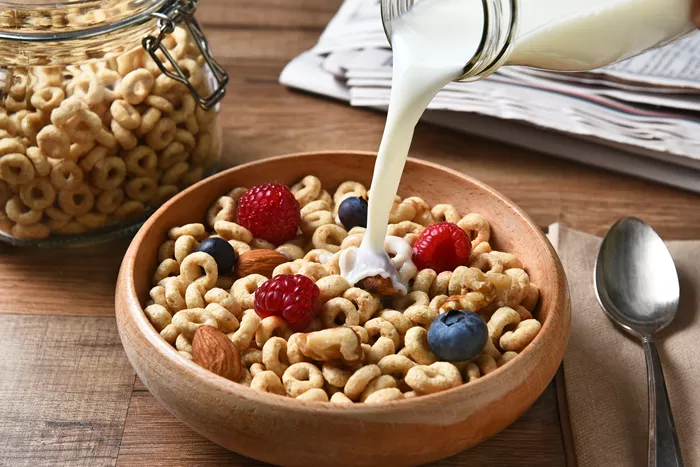The topic of when to introduce solid foods, particularly cereal, to a baby is one that often puzzles new parents. Many parents may wonder if it’s safe to start cereal when 3 month old. This article aims to provide a comprehensive understanding of the factors involved in making this decision.
Developmental Milestones of a 3-Month-Old
1. Physical Abilities
At 3 months, a baby’s physical development is still in progress. Their neck muscles are strengthening, but they may not have full control of their head yet. Sitting up independently or even with good support is usually not achieved at this stage. For example, when placed in a seated position, a 3-month-old may slump forward or to the side as their core muscles are not developed enough to maintain an upright posture. This lack of physical stability can pose a significant risk during feeding, especially when it comes to consuming a semi-solid food like cereal. Without proper head and body control, the baby may have difficulty swallowing properly and could be more prone to choking.
2. Digestive System Maturity
The digestive system of a 3-month-old is relatively immature. Their stomach and intestines are not fully equipped to handle complex carbohydrates and proteins found in cereal. Breast milk or formula is still the ideal source of nutrition as it is easily digested and contains all the necessary nutrients in a form that the baby’s gut can process. The enzymes required to break down the starches in cereal are not yet produced in sufficient quantities. Introducing cereal too early can lead to digestive issues such as gas, bloating, and constipation.
The Myth of Cereal for Sleep
1. Common Belief
One of the main reasons some parents consider giving cereal to a 3-month-old is the belief that it will help the baby sleep through the night. This idea has been passed down through generations and is still prevalent today.
2. Scientific Evidence
However, numerous studies have shown that there is no causal relationship between giving cereal to a 3-month-old and improved sleep patterns. Babies at this age have immature sleep patterns that are regulated by their biological development rather than the type of food they consume. Breastfed babies, in particular, may wake up more frequently as breast milk is digested relatively quickly. But this is a normal part of their development and does not warrant the introduction of cereal. In fact, introducing solids too early can disrupt the baby’s natural sleep cycle and cause discomfort due to digestive problems, leading to more disrupted sleep rather than better sleep.
Risks of Early Cereal Introduction
1. Allergic Reactions
Introducing cereal at 3 months old increases the risk of food allergies. The baby’s immune system is still developing, and early exposure to potential allergens like the grains in cereal can trigger an allergic response. Symptoms of a food allergy can range from mild, such as a rash or itchy skin, to severe, including difficulty breathing, swelling of the face or throat, and anaphylactic shock. Delaying the introduction of solid foods, including cereal, until the baby is around 4 to 6 months old, when their immune system is more developed, can help reduce the risk of developing food allergies.
2. Overfeeding and Nutritional Imbalance
Since a 3-month-old’s stomach capacity is small and their nutritional needs are met by breast milk or formula, it is easy to overfeed them with cereal. This can lead to an imbalance in their overall nutrition. The baby may consume less breast milk or formula, which are rich in essential nutrients like antibodies, fats, and proteins that are crucial for their growth and development. Additionally, overfeeding with cereal can put strain on the baby’s immature digestive system, leading to long-term digestive problems.
Professional Recommendations
1. Guidelines from Medical Bodies
The American Academy of Pediatrics (AAP) and other leading medical organizations recommend waiting until a baby is at least 4 to 6 months old before introducing solid foods. At this age, most babies have achieved certain developmental milestones such as better head control, the ability to sit with support, and an interest in food. These milestones are important indicators that the baby’s body is ready to handle solid foods more safely.
2. Importance of Following Recommendations
Following these guidelines is crucial for the baby’s health and well-being. Parents should consult their pediatrician before making any decisions about introducing solid foods. The pediatrician can assess the individual baby’s development and provide personalized advice.
Alternatives to Cereal at 3 Months
1. Focus on Breastfeeding or Formula Feeding
Rather than introducing cereal, parents should focus on ensuring that their 3-month-old is getting adequate breast milk or formula. Breastfeeding offers many benefits, including providing antibodies that help protect the baby from infections and diseases. If breastfeeding is not possible or insufficient, choosing a high-quality formula that is appropriate for the baby’s age is essential.
2. Promoting Development in Other Ways
Parents can engage in activities that promote the baby’s overall development. Tummy time is an excellent way to strengthen the baby’s neck, back, and shoulder muscles, which are important for later motor skills development. Reading, talking, and singing to the baby can also enhance their language and cognitive development. Skin-to-skin contact with the mother or father helps the baby feel secure and promotes bonding.
Conclusion
In conclusion, it is not advisable to give cereal to a 3-month-old baby. The baby’s developmental and digestive immaturity, along with the potential risks associated with early cereal introduction, far outweigh any unfounded beliefs about its benefits. By following the professional recommendations and focusing on providing proper breast milk or formula nutrition and engaging in activities that support the baby’s growth and development, parents can ensure a healthy start for their child. Waiting until the baby is around 4 to 6 months old and shows signs of readiness for solid foods is the best approach to take. This will help set the stage for a positive and healthy eating journey as the baby grows and develops.
Related Topics:


